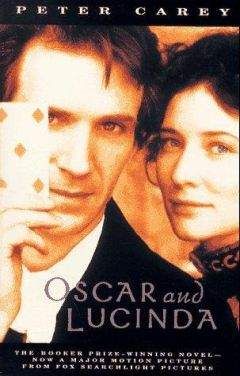Anthony Powell - At Lady Mollys

Скачивание начинается... Если скачивание не началось автоматически, пожалуйста нажмите на эту ссылку.
Жалоба
Напишите нам, и мы в срочном порядке примем меры.
Описание книги "At Lady Mollys"
Описание и краткое содержание "At Lady Mollys" читать бесплатно онлайн.
A Dance to the Music of Time — his brilliant 12-novel sequence, which chronicles the lives of over three hundred characters, is a unique evocation of life in twentieth-century England.
The novels follow Nicholas Jenkins, Kenneth Widmerpool and others, as they negotiate the intellectual, cultural and social hurdles that stand between them and the “Acceptance World.”
‘Well, he is no beauty,’ said Mrs. Conyers.
She spoke with such deep relief at her discovery of the unpleasingness of Widmerpool’s features that she must have feared the worst of her sister’s choice on account of the reported difference of age. Probably she had pictured some golden-haired gigolo of altogether unacceptable personal appearance. The truth was a great consolation to her. Certainly, to look at them, they seemed on the score of age to be a couple very reasonably to be associated together. Mrs. Haycock was in the neighbourhood of forty, and looked no younger, but Widmerpool, although only a year or so over thirty, had always appeared comfortably middle-aged even as a boy.
‘I know him.’
‘Who is he?’
‘He is called Kenneth Widmerpool. I was at school with him as a matter of fact. He is in the City.’
‘I know his name of course. And that he is in the City. But what is he like?’
Mrs. Conyers did not attempt to conceal her own impatience. The reason of her anxiety was now made plain. She had no confidence in her sister’s choice of husband. She wanted to know the worst as soon as possible. Her first, and most serious, fears were passed; she wished to move on to a later stage of enquiry. Widmerpool, although giving her reason to be thankful that the outlook was not more threatening, had evidently made no very captivating impression.
‘Is he nice?’
‘I’ve known him a long time ‘
By then we were both involved in general introductions taking place round the room, so that I was not forced to answer the question. Afterwards, when I got home, I pondered what I should most properly have said in reply. The fact was that Widmerpool could hardly be described as ‘nice’. Energetic: able: successful: all kinds of things that had never been expected of him in the past; but ‘nice’ he had never been, and showed little sign of becoming. Yet, for some reason, I was quite glad to see him again. His reappearance, especially in that place, helped to prove somehow rather consolingly, that life continued its mysterious, patterned way. Widmerpool was a recurring milestone on the road; perhaps it would be more apt to say that his course, as one jogged round the track, was run from time to time, however different the pace, in common with my own. As an aspect of my past he was an element to be treated with interest, if not affection, like some unattractive building or natural feature of the landscape which brought back the irrational nostalgia of childhood. A minute later I found myself talking to him.
‘No, I haven’t seen you for a long time,’ he said, breathing heavily as usual, ‘I’ve been trying to get hold of you, as a matter of fact, to tell you I was getting married.’
‘Many congratulations.’
‘Time to settle down,’ he said.
This remark was fatuous, since he had never been anything but ‘settled down’, at least in my eyes. I could not imagine why he should specially wish to tell me about his marriage, although there could be no doubt from his manner that he was in a great state of excitement at the thought of being engaged. His nose and lips, beneath the huge headlamps of his now rimless spectacles, were twitching slightly. Lunging out towards Mrs. Haycock, who stood not far from him, he seized her arm and drew her in our direction.
‘This is Nicholas Jenkins, my dear. An old friend of mine. He was somewhat my junior at school.’
Mrs. Haycock, who had been talking to her sister, now turned and faced me, so that for the first time since she had entered the room I had an opportunity of observing closely the woman he hoped to make his wife. I could at once appreciate the strong impression she might have made on him the moment she showed herself prepared to accept him as an admirer. Tall, elegant, brassy, she was markedly of the same generation as Molly Jeavons, without personally at all resembling her. Mrs. Haycock’s moral separateness from Widmerpool, immediately noticeable, was not on account of any difference of age, as such, for — as I have said — Widmerpool had never looked young. It was a separateness imposed upon her by the war. Like Jeavons, that was the epoch to which she belonged by some natural right. Life on the Riviera had no doubt left its mark too: a society in which Widmerpool was unlikely hitherto to have participated. She retained some of her sunburn from the previous summer, and, although dressed quite normally — indeed, rather well — her clothes seemed in some indefinable manner more adapted to a plage or casino than the Jeavons drawing-room.
I had always felt an interest in what might be called the theoretical side of Widmerpool’s life: the reaction of his own emotions to the severe rule of ambition that he had from the beginning imposed upon himself: the determination that existence must be governed by the will. However, the interest one takes in the lives of other people is, at best, feeble enough, so that, knowing little of his affairs in recent years, I had in truth largely forgotten about him. Now, for the second time that evening, I recalled the night when that noisy little girl, Barbara Goring, had poured sugar over his head at the Huntercombes’ dance. He had been in love with her; and I, too, for that matter, or had thought so at the time. Then there had been his brief, painful association with Gipsy Jones, the grubby Left Wing nymph, whose ‘operation’ he had defrayed unrewarded. After the Gipsy Jones business, he had told me he would never again have anything to do with a woman who ‘took his mind off his work.’ I wondered whether Mrs. Haycock would satisfy that condition: whether he had proposed to her under stress of violent emotion, or had decided such a marriage would help his career. Perhaps there was an element of both motives; in any case, to attempt to disengage motives in marriage is a fruitless task. Mrs. Haycock took my hand, smiling absently, and gave it a good squeeze; the clutch of a woman pretty familiar with men and their ways.
‘One always has to meet such crowds of people when one gets married,’ she said, ‘It is really too, too exhausting. Did you say we had met before? Was it at Cannes? I seem to know your face.’
She spoke breathlessly, almost asthmatically, in which she resembled Widmerpool, but using that faint hint of cockney, an accent in part bequeathed by the overtones of the Prince of Wales to the world to which she belonged. I tried, quite unsuccessfully and perhaps not very tactfully, to explain the circumstances of our infinitely distant former meeting. It was plainly years since she had listened to any remarks addressed to her, either serious or trivial, so that perhaps deservedly — for the exposition was a formidable rigmarole upon which to embark at that moment — she swiftly disengaged herself from its demands.
‘I’m absolutely longing for a drink, Molly,’ she said. ‘Oh, thank you so much, Mr. Jeavons, what an angel you are. I have been having the most awful time tonight. You know I abominate making plans.. Never make them, as a matter of fact. I just won’t. Well, this evening I got caught up by one of the most awful bores you ever met.’
She drank deeply of the glass brought by Jeavons, and began telling him the story. Widmerpool took me aside.
‘Did I hear you say you had met Mildred before?’
He spoke anxiously.
‘When I was about nine or ten.’
‘What on earth do you mean?’
He sounded quite angry at this statement of mine, intended to set his mind at rest. He supposed I wanted to tease him.
‘Just what I said. It was years ago — with her sister, Mrs. Conyers, to whom you were introduced a second ago. My family have always known General Conyers.’
I hardly knew why I added this last piece of information which sounded somehow a trifle absurd and unnecessary, emphasing the fact that Widmerpool and the General would become brothers-in-law. However, Widmerpool was appeased by this amplification.
‘Quite so,’ he said. ‘Quite so.’
All at once he became abstracted in manner.
‘Look here,’ he said. ‘Come and have luncheon with me. We haven’t had a talk for a long time. What about next Sunday — at my club?’
‘All right. Thanks very much.’
The name of the club surprised me a little. There was no reason at all why he should not belong there, yet its mild suggestion of cosmopolitan life and high card stakes evoked an environment seemingly unsuited to his nature. When employed at Donners-Brebners, Widmerpool must have spent a fair amount of his time with foreign businessmen. Indeed, his professional background at that time might well have been described as international. There was nothing against him on that count. Equally, if he ever played cards, he might, for all I knew, venture high stakes. He could presumably afford such a risk. Neither of these aspects of the scene altered the sense of incongruity. To eyes that had known him as a boy, even the smallest pretension to swagger appeared, for Widmerpool, out of place. That was the point. The verdict was inescapable. Only an atmosphere of quiet hard work and dull, serious conversation were appropriate to him. Such a demand on my part, even though unvoiced, was, of course, absurd. Widmerpool’s conduct was, in any case, no concern of mine. Besides, these sentiments were utterly at variance with Widmerpool’s own view of himself; a view that would obviously play the chief part in his choice of club — or, for that matter, of wife. If such a club was inappropriate to him, how much more incongruous would be a wife like Mrs. Haycock. I could not help thinking that. We talked for a time of general matters. Later on Lovell came across the room.
‘I am giving Priscilla Tolland and her friend a lift home,’ he said. ‘Do you want to be taken as far as your flat?’
I had no difficulty in perceiving the reason for this offer and resigned myself to sitting in the back with the friend.
‘Come and see us again,’ said Molly Jeavons, when saying good-bye. ‘Make Chips bring you, or just drop in.’
‘So long, old man, come again,’ said Jeavons.
He had been standing for a long time by the drink tray, plunged in deep thought, perhaps still contemplating the subject of film stars and their varied, disturbing charms. Now he took me by the hand, as if his thoughts were far away. I followed Lovell and the girls downstairs to the car. Outside there was a hint of fog in the air. The river mist seemed to have pursued us from the Studio. Nothing of note happened on the way home. The school friend talked incessantly of the visit she was going to pay to Florence. We dropped her at an address in Wimpole Street, after disposing of Priscilla Tolland at her stepmother’s house in Hyde Park Gardens.
2
‘We might go straight in to lunch,’ said Widmerpool, when we met a day or two later. ‘If you so wish, you can drink a glass of pale sherry at the table. We are sometimes crowded at the luncheon hour. Incidentally, you will probably see the Permanent Under-Secretary of the Home Office at one table. He honours us with his presence most days — but I forgot. It is Sunday today, so that he may not be with us. I am afraid, now I come to think of it, that it is a long time since I went to church. I shall attend a service next week when I stay with my mother in the country.’
‘How is your mother?’
‘Better than ever. You know she literally grows younger. A wonderful woman.’
‘Does she still have the cottage near Hinton?’
‘It is a little small, but it suits us both. We could well afford something larger nowadays, but she loves it. Her roses are the admiration of the neighbourhood.’
‘You still see something of the Walpole-Wilsons and Sir Magnus Donners?’
‘The Walpole-Wilsons I have lost all touch with,’ said Widmerpool. ‘Sir Magnus is, of course, an old friend. Whatever his faults — some of which it would be foolish to disregard — he has rendered me in the past inestimable service. As it happens, he has not asked me over to Stourwater recently. I must ring him up. But come along. To lunch, to lunch.’
He spoke with that air of bustle that infected all his dealings. During the few seconds in which we talked he had managed to convey the sensation that we were physically too close together. More than once I edged away. He seemed all the time pressing at one’s elbow, like a waiter who breathes heavily over you as he irritably proffers a dish awkward to handle. Widmerpool, too, gave the impression of irritation, chronic irritation, as if he felt all the time that the remedy to alleviate his own annoyances lay in the hands of the people round him, who would yet at the same time take no step to relieve his mounting discomfort; for his manner conveyed always a suspicion that he knew only too well that things were almost as bad for those who were with him as for himself.
He swept me forward into the dining-room. The club steward, no doubt familiar with Widmerpool’s predispositions, indicated a table by the window, flanked on one side by two yellow-faced men conversing in suited, sing-song French: on the other, by an enormously fat old fellow who was opening his luncheon with dressed crab and half a bottle of hock. One of the men talking French I thought I recognised as the Balkan diplomatist seen at the Jeavonses and said to be of Prince Theodoric’s entourage.
‘Have anything you like to eat or drink,’ said Widmerpool. ‘Consult the menu here. Personally I am on a diet — a little gastric trouble — and shall restrict myself to cold tongue and a glass of water.’
He handed me the card, and I ordered all I decently could in the face of this frugality.
‘You are still — publishing — advertising ?’ he asked.
‘Was it not something of the sort?’
His manner of asking personal questions was of that kind not uncommonly to be found which is completely divorced from any interest in the answer. He was always prepared to embark on a lengthy cross-examination of almost anyone he might meet, at the termination of which — apart from such details as might chance to concern himself — he had absorbed no more about the person interrogated than he knew at the outset of the conversation. At the same time this process seemed somehow to gratify his own egotism.
‘I was in publishing. Art books. Now it is the film business.’
‘Indeed? What unusual ways you choose to earn a living. Not acting, surely?’
‘Hardly. I am on what is called the “scenario side”. I help to write that part of the programme known as the “second feature”. For every foot of American film shown in this country, a proportionate length of British film must appear. The Quota, in fact.’
‘Ah, yes, the Quota, the Quota,’ said Widmerpool, cutting short any further explanation, which would certainly have been tedious enough. ‘Well, I never expected to sit at the same table as host of a man who wrote films for the Quota. Do you like the work?’
‘Not greatly.’
‘It may lead to something better. If you are industrious, you get on. That is true of all professions, even the humblest. You will probably end up in Hollywood, or somewhere like that. But tell me, do you still see those friends of yours, Stringham and Templer?’
‘Stringham I haven’t seen since the night he got so tight, and you and I helped to put him to bed. I rang up a day or two later and found he had gone abroad. From what I hear, he is drinking enough to float a battleship. There was even a question of taking a cure.’
Подписывайтесь на наши страницы в социальных сетях.
Будьте в курсе последних книжных новинок, комментируйте, обсуждайте. Мы ждём Вас!
Похожие книги на "At Lady Mollys"
Книги похожие на "At Lady Mollys" читать онлайн или скачать бесплатно полные версии.
Мы рекомендуем Вам зарегистрироваться либо войти на сайт под своим именем.
Отзывы о "Anthony Powell - At Lady Mollys"
Отзывы читателей о книге "At Lady Mollys", комментарии и мнения людей о произведении.

























